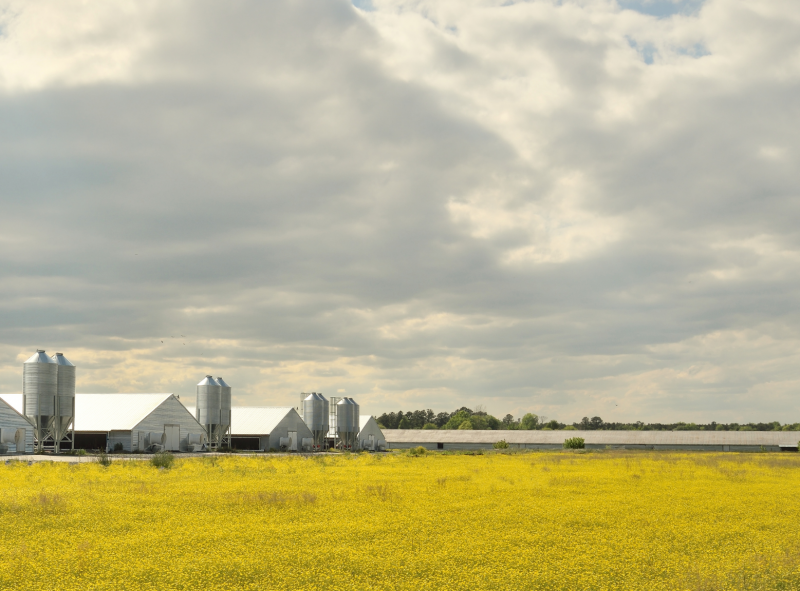
DOVER, Del. (March 9, 2022)— Federal laboratory testing has confirmed two cases of highly pathogenic H5N1 avian influenza (HPAI)—one pullet operation in New Castle County, Delaware, and one broiler flock in Queen Anne’s County, Maryland. Following an investigation by the Delaware and Maryland Departments of Agriculture, the U.S. Department of Agriculture’s (USDA) National Veterinary Services Laboratory has confirmed poultry from these farms have tested positive for highly pathogenic H5N1 avian influenza (HPAI).
These avian influenza findings follow previously announced cases on farms in New Castle County, Delaware, and Cecil County, Maryland. Following these cases, federal and state partners have greatly expanded their surveillance sampling and testing regimen to better protect the poultry industry on the Delmarva Peninsula.
State officials have quarantined all affected premises, and birds on the properties are being or have been depopulated to prevent the spread of the disease. Birds from affected flocks will not enter the food system.
Avian influenza is a highly contagious airborne respiratory virus that spreads quickly among birds through nasal and eye secretions and manure. The virus can be spread in various ways from flock to flock, including by wild birds, through contact with infected poultry, by equipment, and on the clothing and shoes of caretakers. This virus affects poultry, like chickens, ducks, and turkeys, along with some wild bird species such as ducks, geese, shorebirds, and raptors.
Considering these new cases and the prevalence of the virus in the wild bird population, all poultry owners need to increase their vigilance in protecting their flocks from contracting avian influenza.
Key biosecurity practices:
• Clean and disinfect vehicles. Don’t walk through or drive trucks, tractors, or equipment in areas where waterfowl or other wildlife feces may be. If you can’t avoid this, clean your shoes, vehicle, and equipment thoroughly to prevent bringing disease agents back to your flock. This is especially important when visiting with farmers or those who hunt wildfowl, such as when gathering at a local coffee shop, restaurant, or gas station. • Remove loose feed. Don’t give wild birds, rodents, and insects a free lunch! Remove spilled or uneaten feed immediately and ensure feed storage units are secure and free of holes. Wild birds can carry HPAI. • Keep visitors to a minimum. Only allow those people who take care of your poultry to come in contact with your birds, including family and friends. Make sure everyone who has contact with your flock follows biosecurity principles. • Wash your hands before and after coming in contact with live poultry. Wash with soap and water (always your first choice). If using a hand sanitizer, remove manure, feathers, and other materials from your hands because disinfectants will not penetrate organic matter or caked-on dirt. • Provide disposable boot covers (preferred) or disinfectant footbaths for anyone having contact with your flock. If using a footbath, be sure to remove all droppings, mud, or debris from boots and shoes using a long-handled scrub brush BEFORE stepping into the disinfectant footbath, and always keep it clean. • Change clothes before entering poultry areas and before exiting the property. When handling birds, visitors should wear protective outer garments or disposable coveralls, boots, and headgear. Shower out and change clothes when leaving the facility. • Clean and disinfect tools or equipment before moving them to a new poultry facility. Before allowing vehicles, trucks, tractors, or tools and equipment (e.g., egg flats and cases) that have come in contact with birds or their droppings to exit the property, ensure they are cleaned and disinfected to prevent contaminated equipment from transporting disease. Do not move or reuse items that cannot be cleaned and disinfected, such as cardboard egg flats. • Look for signs of illness. Know the warning signs of infectious bird diseases.
If You Have Sick Poultry or Experience Increased Mortality in Your Flock: • Commercial poultry producers should follow the procedures of contacting the company they grow for when they notice signs of disease. • Backyard flock owners who notice any of the signs of HPAI in their flock should contact:
- In Delaware, email the Delaware Poultry Health Hotline at poultry.health@delaware.gov or call 302-698-4507 and provide your contact information, size of flock, location, and concerns.
- In Maryland, report any unusual or sudden increases in sick birds to the MDA Animal Health Program at 410-841-5810. Commercial chicken growers and backyard flock owners can email questions about the outbreak to MD.Birdflu@maryland.gov.
Additional Information: For all media requests about HPAI, email: JIC@delaware.gov Due to biosecurity concerns, no on-site interviews, photos, or videos are allowed. For more information on avian influenza, visit https://de.gov/poultry or https://mda.maryland.gov/Pages/AvianFlu.aspx.











